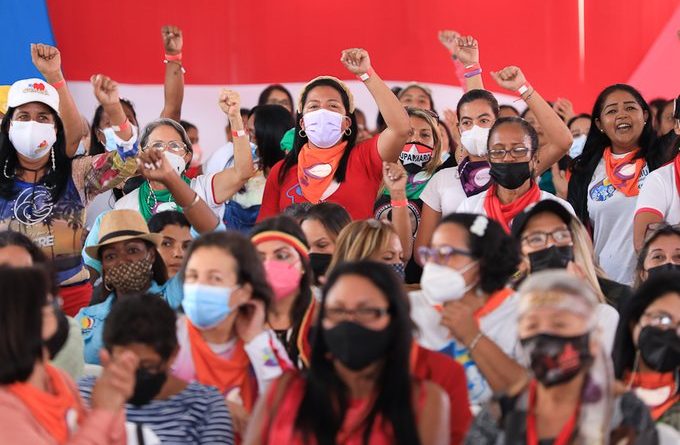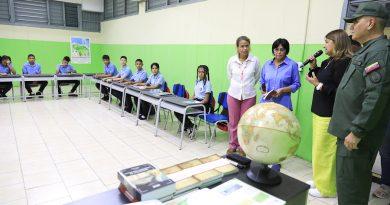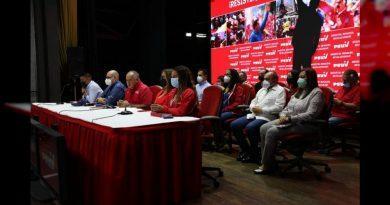
President Nicolás Maduro emphasized this Tuesday that the rights of women and gender equality are pillars of the Bolivarian Revolution.
During his participation in the installation of the Venezuelan Congress of Women, the Head of State instructed the ministers who are members of the Executive Cabinet to go to the neighborhoods, house by house, to learn about the reality of Venezuelan women:
«You have to go community by community with the Congress to listen to the working women, student women, women from the neighborhood,» he stressed.
In this sense, he instructed the entire country to build a culture to reduce gender violence and any type of violence against the family:
«No to violence against women!», said the President during his speech, and reiterated “the need for this congress to meet the objective of supporting Venezuelan women so that they can propose the changes that Venezuela needs».
Likewise, he ordered that the proposals that emerged in this 3rd Venezuelan Congress of Women be systematized and presented to the Presidency of the Republic, for their approval and gradual application.
Almost a thousand proposals to evaluate:
A total of 1982 delegates from all over the country have gathered to participate in this Congress, distributed in 1242 territorial delegates, 240 delegates from state movements by sector 240, 270 representatives of national movements and 230 natural leaders from all over the country.
The Minister of People’s Power for Women and Gender Equality, Diva Guzmán, explained that to date 6,137 women have been summoned throughout the country, leaders who have consolidated 926 proposals, assembled in an agenda to address health issues, the role of women in the economy, care for the family, as well as in the promotion of public policies that encourage the participation of Venezuelan women in the political, economic, social and cultural spheres, based on gender equality:
«Since March 15 we have had 24 meetings throughout the country, with more than 700 women in preparatory teams, where more than 64 women’s movements have been diagnosed”, said the minister.


